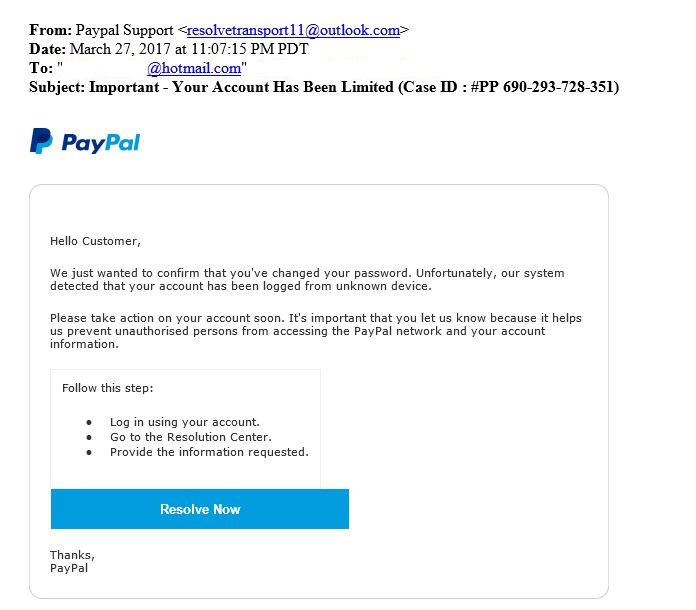PayPal Phishing Email
Home Help Center PayPal Phishing Email
Those phony emails that looked ridiculous are getting better and better at looking real.

What Is It: Phishing scam that informs you your account is compromised
What Are They After: PayPal users, beware—a new phishing email is making the rounds and it looks like the real deal. If you’re used to badly worded and misspelled emails with cut-and-paste corporate logos, informing you that your “acount” has been “comprised,” then this new version might throw you off a little. In this case, someone has invested a little time and money in making sure the wording looks accurate and the spelling (for the most part) is spot on before they tell you to click the button to update your account.
However, there are a few telltale signs that something’s not right. First, the sender’s email address is definitely NOT PayPal. The scammer simply sent this out after hacking into someone’s email contacts list. Second, there’s one word that stands out: authorized. Or should we say, “authorised,” as the scammer spelled it. That British spelling isn’t incorrect, but PayPal is a US-based company and doesn’t use British spellings.
How Can You Avoid It:
- Any time you get an email from a company, look it over for signs that something’s not right.
- If you receive an email telling you to update, verify, or otherwise confirm your account, delete it.
- If there could be some truth to it (or it looks genuine), still delete it and go log into your account on your own. Never click the link to enter personal information.
If you think you may be a victim of identity theft, contact the Identity Theft Resource Center for toll-free, no-cost assistance at (888) 400-5530. Find more information about current scams and alerts here. For full details of this scam check out this article from IDTheftCenter.org.
How much information are you putting out there? It’s probably too much. To help you stop sharing Too Much Information, sign up for the In the Loop.
Get ID Theft News
Stay informed with alerts, newsletters, and notifications from the Identity Theft Resource Center

